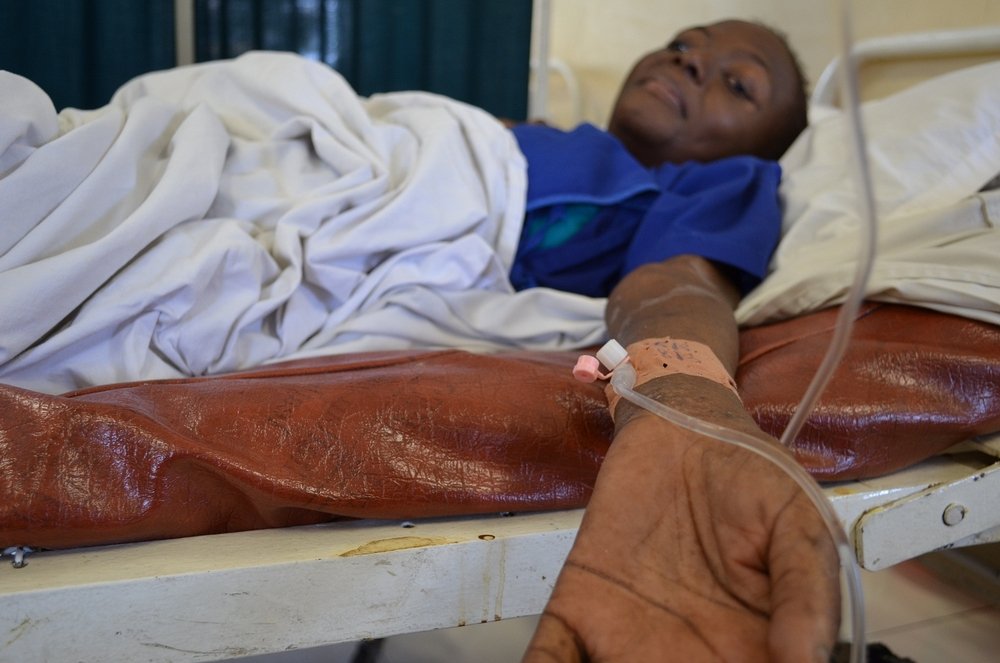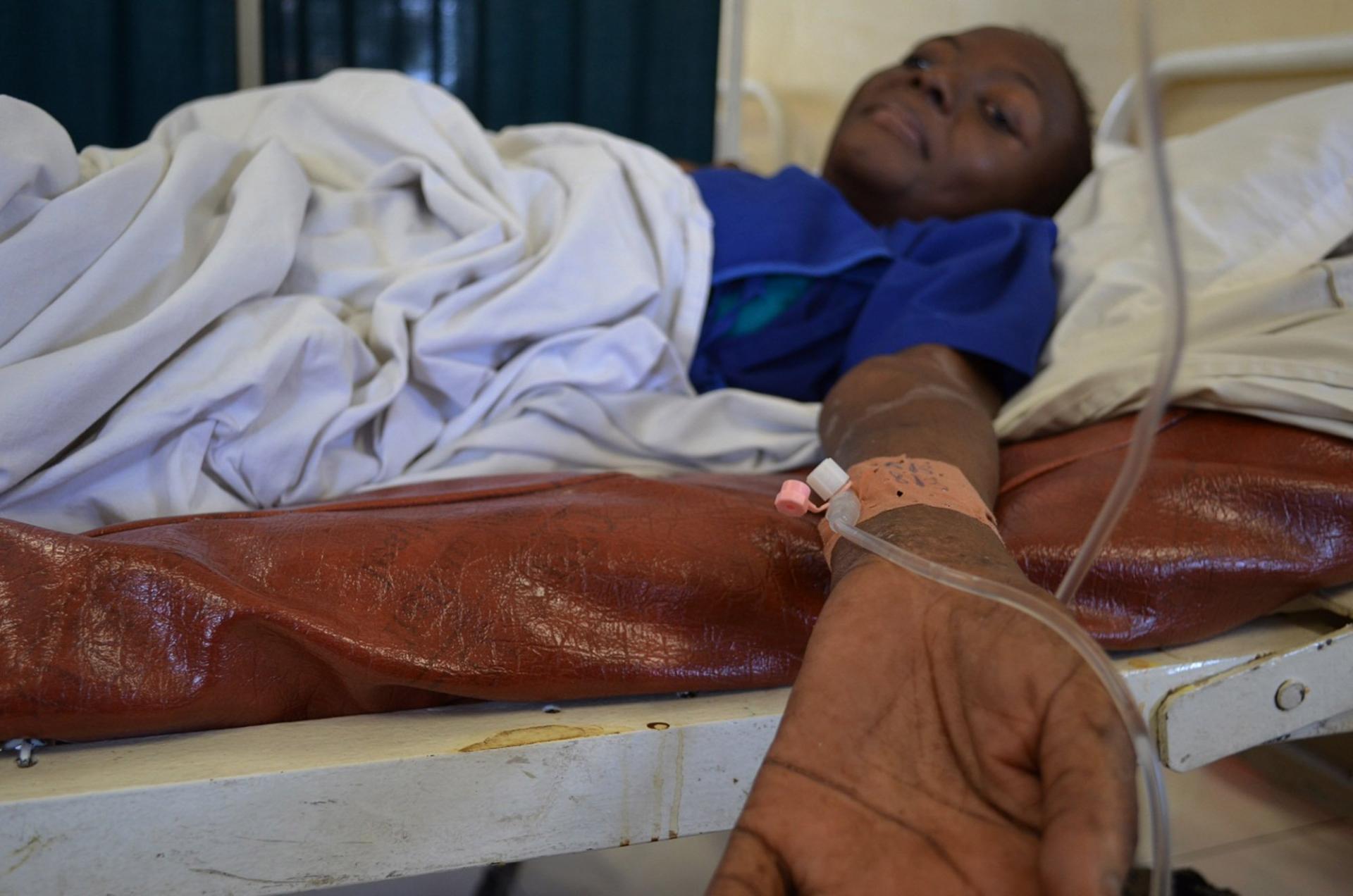Despite the tremendous progresses made in the fight against HIV, many countries in West and Central Africa are still left behind the AIDS revolution that brought treatment to over 13 million people.
Barely a third of the people who need it receive antiretroviral treatment in those two regions, against over half of those in the high burden countries of Southern Africa. This is despite the fact that HIV prevalence is more than three times higher in the South of the continent.
In the DRC, 83% of the people living with HIV have a death sentence hanging over their heads because they don’t have access to life-saving treatment.
37-year old Elysee from Kinshasa, DRC, was abandoned by everyone – friends, family – when she was diagnosed with HIV. She arrived very weak in MSF’s Kabinda hospital, in Kinshasa, where the most advanced cases of HIV are treated.

“I’ve been here at the Kabinda Centre for six days.
When I arrived, my condition was much worse. I couldn’t sit up, I couldn’t stand. But now I’m better. I have a bit of pain, in my side mostly, but once those pains go away I’ll be able to go home. It’s a painful illness, a bit difficult… But what can you do! You can only live with it.
I was born in Kinshasa, grew up in Kinshasa but I never knew about this place. In any case, HIV is not something people talk about.
Five years ago, while I was working in a clothing boutique, I started to get thinner and thinner and people around me took notice.
My sister brought me here, and that’s how I learned I was HIV positive. I was so confused… I thought, “I’ve never been a prostitute – how did I get HIV? I was married – how did I get HIV?”
I continued to get thinner, and I went to another health centre. There I started taking medication but I was a bit negligent. If I had continued to take the medication, I would never have gotten into the state I am in now.
There was a time when I totally lost hope. My family, my four brothers, they have all abandoned me. At one point, my husband took the children and sent them away to the village. It was my husband who gave me HIV.
He contracted the virus from a young woman in our neighborhood. When I started to lose weight, he threw me out and he married another woman. It was such a shock; I became depressed and that’s when all my misfortunes started.
My husband has gained a lot of weight, wears all kinds of jewellery. When you see him you think, now that is a man! He has no problem! As for me, I call myself a ‘widow of love’.
Most of the time, when families find out they have HIV, most of them abandon you. They’ll drop you and they leave, never to come back.
While I was ill, people went to my house and took everything. They took whatever they could, believing that I was going to die. It was so traumatic that I had a relapse. So when my health comes back, I’m going to put myself together well and no one will know that I’ve got HIV.
I spent all my money in health centres and hospitals. When all the cash ran out, the centre threw me out, saying "Go home, you’re going to die".
A doctor said they couldn’t just let me die like that, so they brought me to MSF’s Kabinda hospital. If I hadn’t come, I would have died.
But here in this centre it’s different. When you arrive they change the sheets on the bed, they give you something to eat, even if you’ve wet the bed. You’re all right. They wash you, you’re clean.
There’s a doctor who tells us about the medications we’re taking, and if you have a relapse, you come back. And if they see that you’re in bad shape, they keep you here and you stay. There is water, electricity all the time.
There are some people who don’t want to leave because the conditions are better here.
Find out more about MSF's work in the Democratic Republic of Congo.
